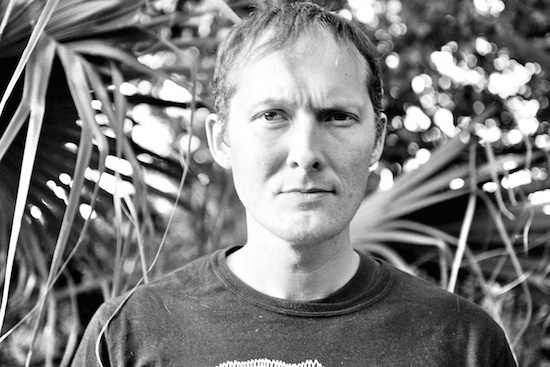Photograph courtesy of Greg Neate
At a concert in July in Sydney, Lawrence English told the crowd to lie down. "The floor is absolutely the place for this music. So get close to someone, get intimate – you never know where experimental music might lead." English was playing alongside performers including Liz Harris, William Basinski, Louise Curham and Makino Takashi as part of the annual Open Frame festival – this year, marking Room40’s 15th birthday.
Giving an audience permission to break from the orthodoxy of standing and facing a stage should happen at more sound art shows. English’s sexual innuendo was a nice touch, too. Experimental music scenes – at least in Australia – can suffer from a churchy reverence and lack of crowd spontaneity. On the upside, this makes them a welcoming space for those turned off by rock & roll’s boozy excess. On the downside, it frames in frigidity what could be a hotly visceral experience.
In October, Stockholm residents will have their opportunity to get prostrate to sound art at Open Frame’s European outing, marketed as “three days of radical listening”. The program features a new work from Melbourne’s Thembi Soddell, described by English as “one of the few women working in musique concrete in Australia”.
Soddell says her work explores “psychology, perception, extreme emotion and the subjectivity of experience.” Using a sampler to generate sounds ranging from field recordings to instrument textures she “exploits dynamic extremes and toys with the listeners’ sense of expectation and disquiet”. Soddell’s piece for Open Frame will draw on her PhD research. “I’m using electro acoustic composition to embody concepts drawn from first-person madness narratives that describe a person’s experience with mental illness or psychological distress.”
Also on the bill is a rare appearance by France’s Brunhild Ferrari, the “dense, liminal psycho acoustics” of America’s Olivia Block, and a percussive electronic work from Italy’s Andrea Belfi. English, meanwhile, will perform Viento: a sound piece based on his field recordings in Patagonia and Antarctica. He will also be airing Jim O’Rourke’s surround sound composition, Diffusionfor the second time (its European premiere) on behalf of the American composer and musician who rarely leaves his home in Japan.
“I’m a huge O’Rourke fan,” says English. “He’s a musician who makes pop songs but also complex electro acoustic music for diffusion. I like that there’s no distinction; he loves music in all its forms. I believe Makino Takashi was very kind about my diffusion of the work in Sydney and Jim said he wanted me to present it again,” says English.
Diffusions are a musique concrete approach, explains English, “like early surround sound.” They also present a great opportunity for people to abandon the idea of standing – or sitting – to stare at a performer onstage. “Particularly with diffusions, it’s not about that focus. It’s about the auditory experience and being embedded in sound rather than being performed to.
“We’re used to the way concerts work. Even when you’re listening to an instrument, there’s directionality to it, whereas diffusions are a refusal of that. It’s placing the sound everywhere, rather than somewhere, and it’s moving you within that. Your priority is not your vision or the gestural nature of the performance, it’s about being consumed wholly by sound.”
English enjoys the contrast that comes with speakers of varying quality, too. “I like it when the nature of the speaker itself becomes a membrane for transmitting the sound. It’s like when you listen to a record or a tape and there’s a transference of the medium.”
Open Frame takes places over two Stockholm venues: Audiorama for the first two nights, then at a “beautiful old power station” run by Fylkingen – a society for new and experimental work founded in the 1930s. You can fins more information here.


